A Breakthrough Deal for Venezuela
Washington agrees to lift sanctions on Caracas in exchange for a pledge of free elections.
Welcome back to Foreign Policy’s Latin America Brief.
Welcome back to Foreign Policy’s Latin America Brief.
The highlights this week: Venezuela’s political negotiations see a breakthrough, Ecuador elects the region’s newest millennial president, and Colombia threatens to cut ties with Israel.
Coexisting With Caracas
This week, three major actors in Venezuela’s political and economic crisis announced a landmark set of deals. President Nicolás Maduro’s government, a bloc representing the country’s political opposition, and the United States have held on-and-off talks for years about how to address Venezuelan’s authoritarian turn. Now, they finally have some new progress to show for their efforts.
At a ceremony hosted by Barbados on Tuesday, the Venezuelan parties committed to holding presidential elections in the second half of 2024 in accordance with conditions that include the presence of international observers. Then, on Wednesday, the U.S. Treasury Department lifted some broad sanctions on Venezuela’s oil, gas, and gold sectors, specifying that the measures could be reinstated if Caracas does not comply with the elections deal.
The agreements are a breakthrough in one of the Western Hemisphere’s most bitter and far-reaching political, economic, and humanitarian impasses. While Gerardo Blyde, the opposition’s chief negotiator, celebrated the news, he acknowledged that full redemocratization in Venezuela is still a long way off.
The United States has applied a range of economic sanctions on Venezuelan individuals, firms, and state entities since at least 2015, citing undemocratic actions by Maduro’s government. The Obama administration imposed the punitive measures in response to government repression of peaceful protests; in the years since, they have been extended in response to unfair elections.
In January 2019, following an internationally criticized presidential election—and as part of a plan to remove Maduro from power—the Trump administration escalated sanctions to include sweeping restrictions on Venezuela’s ability to sell oil, historically its largest export. By that time, the country’s economy was already slumping under poor management, but the sanctions pushed it into deeper misery; more than 7 million Venezuelans have fled the country since 2015.
Latin American governments, for their part, were divided over how to respond to Venezuela’s democratic backsliding, and many stopped formally recognizing Maduro in 2019. The disjointed responses to Venezuela hampered regional cooperation. Meanwhile, Caracas leaned on ties with countries including China, Iran, and Russia for its political and economic survival.
When U.S. President Joe Biden took office in 2021, it was unclear whether—and to what extent—he would unwind former President Donald Trump’s policies toward Venezuela, especially because U.S. sanctions, once applied, are rarely removed. But later that year, the U.S. Treasury Department conducted a review of its sanctions policy in the face of increasing evidence that sanctions often do not achieve their stated goals, be they regime change, abandonment of nuclear weapons, democratization, or otherwise—signaling a potential change in course.
Then the inaugurations of Colombian President Gustavo Petro in 2022 and Brazilian President Luiz Inácio Lula da Silva in January shifted the regional diplomatic playing field: Two important Latin American governments that had previously spurned Maduro suddenly wanted to reengage with Venezuela—and urged Maduro to accept demands from the opposition and the United States about electoral conditions, the International Crisis Group’s Mariano de Alba told Foreign Policy.
Latin American leaders have increasingly voiced concerns about the connections between U.S. sanctions on Venezuela and the uptick in migration from the country, de Alba noted. Several leaders’ speeches at last month’s United Nations General Assembly raised this issue. The migration crisis “is not only very much affecting the U.S., but it also has a huge impact in many Latin American countries,” he said.
The United States and other Western democracies—such as European countries, which also supported this week’s agreements—are sensitive to shifting geopolitical winds, too, Blyde told Mundo UR Radio on Wednesday.
“In a world that has changed enormously, from the Russian invasion of Ukraine, from what’s happening in the Middle East right now,” he said, “there are interests, geopolitically, in bringing Venezuela out of the area of influence of countries where there is conflict today, like Iran, Russia, etc., and bring them closer, toward the West.” Venezuela’s vast oil reserves, the world’s largest, have become more desirable as energy resources are weaponized amid the conflict in Ukraine and threaten to become entwined with the new war in Middle East.
On Sunday, Venezuela’s opposition parties are scheduled to hold primaries to determine who will run against Maduro in 2024. Poll front-runner María Corina Machado will participate in the primary even though Maduro’s government has banned her from running in 2024. In a statement Wednesday, U.S. Secretary of State Antony Blinken said Washington expects Maduro by the end of November to announce a timeline for the reversal of bans on political candidates and to begin to release Venezuelan political prisoners and wrongfully detained U.S. nationals in the country—and that failure to comply with agreements would lead to sanctions being reimposed.
Late Wednesday night, Venezuelan authorities released five detainees, including two former opposition leaders, Blyde posted on X, the platform formerly known as Twitter.
Now, Venezuela’s opposition has a window of opportunity to organize and build political legitimacy with voters. While Maduro’s track record suggests he would like to eventually block them from winning, there are plenty of examples of unexpected opposition success under highly adverse electoral conditions across Latin America—such as the Seed Movement’s surprise victory in Guatemala this year. There, the opposition’s efforts to “play the long game” paid off.
Upcoming Events
Sunday, Oct. 22: Argentina holds the first round of its presidential election.
Venezuela holds an opposition presidential primary.
What We’re Following
Colombia-Israel tensions. Israel on Sunday announced that it was suspending military exports to Colombia over comments Petro made the previous week—no small matter, as Israeli-made arms and espionage tools are widely used by the Colombian security services. In posts on X, Petro compared the current Israeli siege of Gaza to actions committed by the Nazis in Germany. Israel’s foreign minister said the comments “inflame antisemitism” and “threaten the safety of the Jewish community in Colombia.” Petro doubled down in response, posting that “we will suspend relations with Israel if we have to.”
Diplomatic relations remain intact but highly tense. A group of 134 Colombians, including high-profile economists and former government ministers, released a public letter on Wednesday rejecting Petro’s position. The letter calls for the government and foreign minister “to unequivocally reject Hamas’s terrorist attacks against the state and citizens of Israel.” It followed a similar public statement last week from former Colombian foreign ministers.
Late on Thursday, Petro tweeted “solidarity with Israeli and Palestinian children” and announced that he had met with the ambassadors of both Israel and Palestine. (Like most Latin American countries, Colombia recognizes the state of Palestine.) He also said that Bogotá would send humanitarian aid to Gaza and “open its embassy in Ramallah, Palestine.”
Boric in China. Boric was in Beijing for the Belt and Road Forum this week, where he announced that a Chinese firm will invest $233 million in a lithium processing plant in Chile. The investment is in line with Chile’s goals to secure technology transfer deals as part of its national lithium strategy. Chilean workers will travel to China for academic training as part of the agreement, and 90 percent of the workers in the plant in Chile will be Chilean, the government said. A parallel “Chile Week China” occurred in several other Chinese cities to promote trade and investment in Chile from outside Beijing.
Argentine presidential candidate Javier Milei of La Libertad Avanza speaks to supporters during a rally in Buenos Aires on Oct. 16.Tomas Cuesta/Getty Images
An outsider rises in the outskirts. Argentines will vote this weekend in the first round of a presidential election in which polls suggest a strong performance by firebrand anarcho-capitalist Javier Milei. An important bellwether of Milei’s appeal is Buenos Aires’s sprawling, working-class suburbs, which were traditionally a stronghold of the governing leftist Peronist movement but backed Milei in large numbers in August’s primary elections.
In Americas Quarterly this week, writer Jordana Timerman draws insights from Argentine journalist Carlos Pagni’s book about those suburbs, The Knot, which quickly became a best-seller in the country after it was released in March. Pagni’s portrait of the area, Timerman explains, shows how Argentine politicians “must respond to electorally relevant but short-term concerns in the region at the cost of national, long-term growth.”
The outskirts of Buenos Aires also have a history of birthing riots that move to the center of the city and alter the course of national politics, such as in 2001 protests and looting that led to the downfall of a president. With annual inflation in Argentina at over 130 percent, the area may birth a new political rupture in the coming elections.
Question of the Week
What percentage of Argentina’s population lives in Buenos Aires province, home to the capital’s suburbs?
More than 20 percent
More than 25 percent
More than 30 percent
More than 35 percent
That’s why the Buenos Aires suburbs are such an important political bellwether.
FP’s Most Read This Week
- The Geopolitics of Palestine, Explained by Allison Meakem
- Modi’s Comments on Israel-Gaza War Signal Shift by Sumit Ganguly and Nicolas Blarel
- Why the Israeli Hostages Face Grim Prospects by Tal Alroy
In Focus: Ecuador’s Next Leader
Ecuadorian President-elect Daniel Noboa arrives at Carondelet Palace in Quito, Ecuador, on Oct. 17.Franklin Jacome/Getty Images
Latin America is set to welcome its newest millennial president: Ecuador’s Daniel Noboa, a 35-year-old centrist businessman and heir to a fortune amassed through banana exports. Noboa won last Sunday’s snap presidential runoff against Luisa González, who represented the leftist political movement of former President Rafael Correa.
Correa’s political group is a major force in Ecuadorian politics. After Correa left office in 2017, his former Vice President won a presidential election; in the two contests since, the movement sent presidential candidates to the runoff, but they have not managed to win.
Reflecting on González’s defeat despite the size of the political machine behind her, journalist María Sol Borja pointed to lingering voter distaste with Correísmo, as Correa’s political project is commonly known, due to the treatment of Indigenous activists, human rights activists, and reporters during Correa’s government, about which “there was never acknowledgment of mistakes made.” Meanwhile, analysts noted that Noboa tried to portray himself as someone who could overcome the divide between pro- and anti-Correa sentiment in the country.
Once inaugurated, Noboa will have a short, roughly year-and-a-half period in office in which his security policy will be closely watched. (His term will end around May 2025.) The assassinations of a presidential candidate from another party and several other local politicians and organizers loomed over the campaign, representing a shocking escalation in political violence in a country already reeling from drug-related insecurity. Both González and Noboa made similar pledges to toughen control of Ecuador’s prisons and ports in response.
Writing in Foreign Affairs, the International Crisis Group’s Ivan Briscoe and Glaeldys González argued that a hard-line response to insecurity may be tempting in Ecuador, especially as Salvadoran President Nayib Bukele touts the reduction in crime that has followed his mass arrests of suspected gang members. But the authors stress that Ecuador is distinct from El Salvador in that its gangs appear more powerful and more connected to global drug trafficking routes. An approach focused on arresting and killing gang kingpins could prompt powerful blowback, as it did when Mexican President Felipe Calderón declared a militarized war on drugs in that country in 2006.
Catherine Osborn is the writer of Foreign Policy’s weekly Latin America Brief. She is a print and radio journalist based in Rio de Janeiro. Twitter: @cculbertosborn
More from Foreign Policy
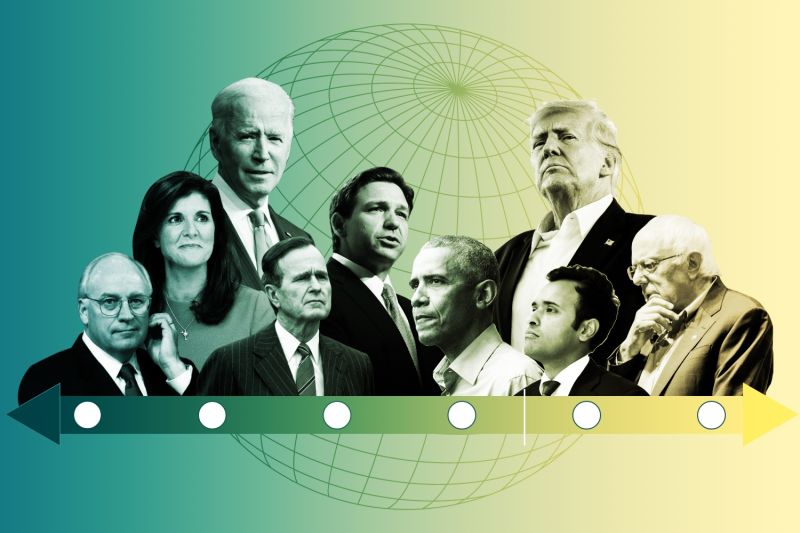


The Scrambled Spectrum of U.S. Foreign-Policy Thinking
Presidents, officials, and candidates tend to fall into six camps that don’t follow party lines.
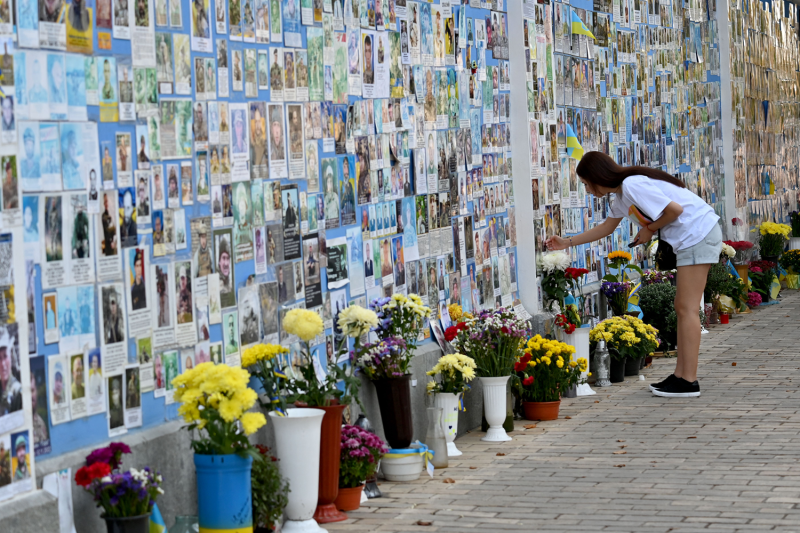


What Does Victory Look Like in Ukraine?
Ukrainians differ on what would keep their nation safe from Russia.
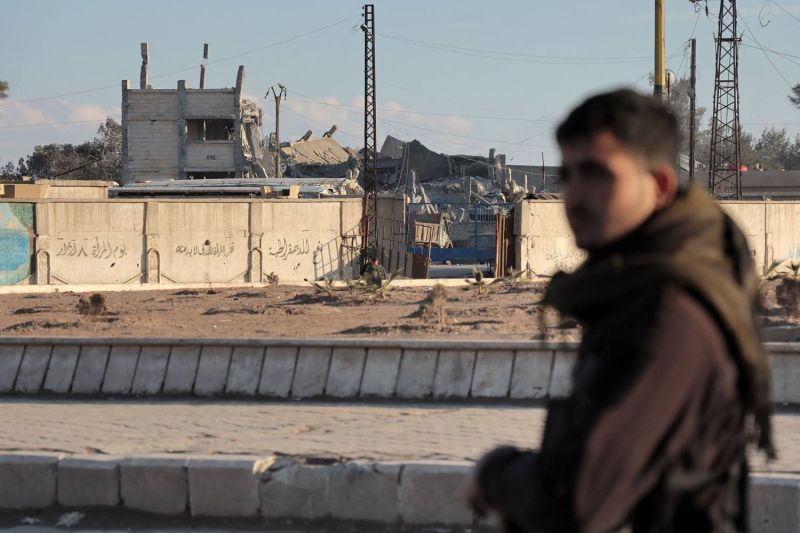


The Biden Administration Is Dangerously Downplaying the Global Terrorism Threat
Today, there are more terror groups in existence, in more countries around the world, and with more territory under their control than ever before.
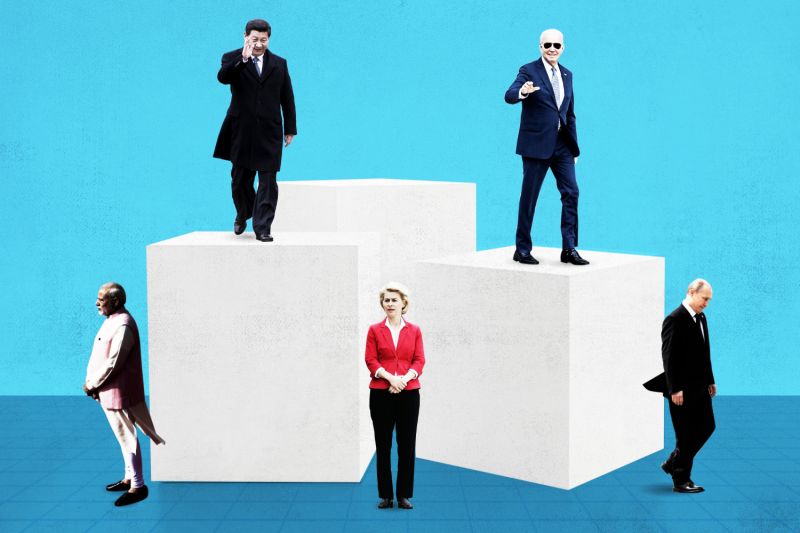


No, the World Is Not Multipolar
The idea of emerging power centers is popular but wrong—and could lead to serious policy mistakes.
This post was originally published on this site be sure to check out more of their content.



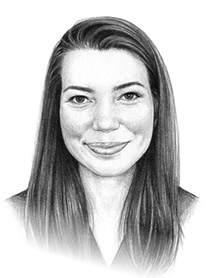
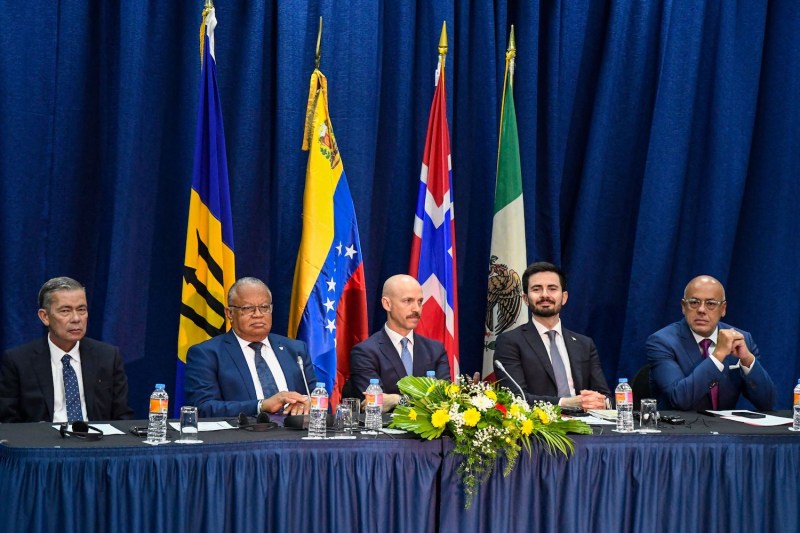
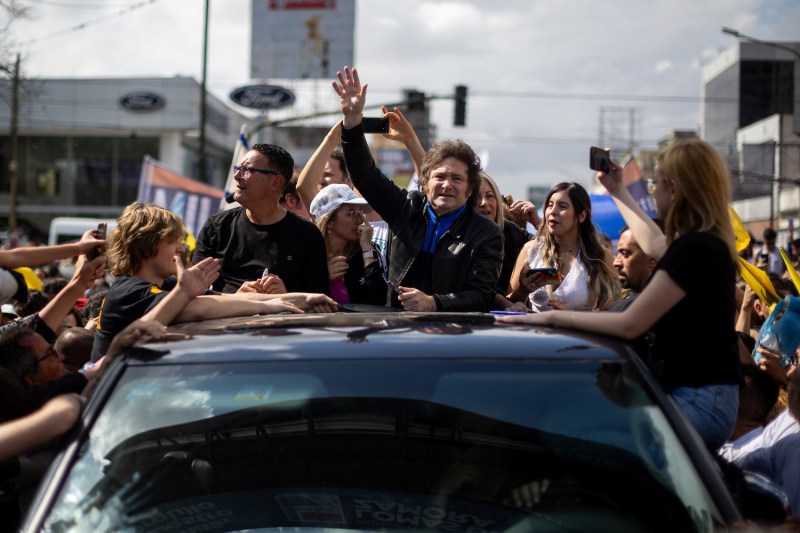
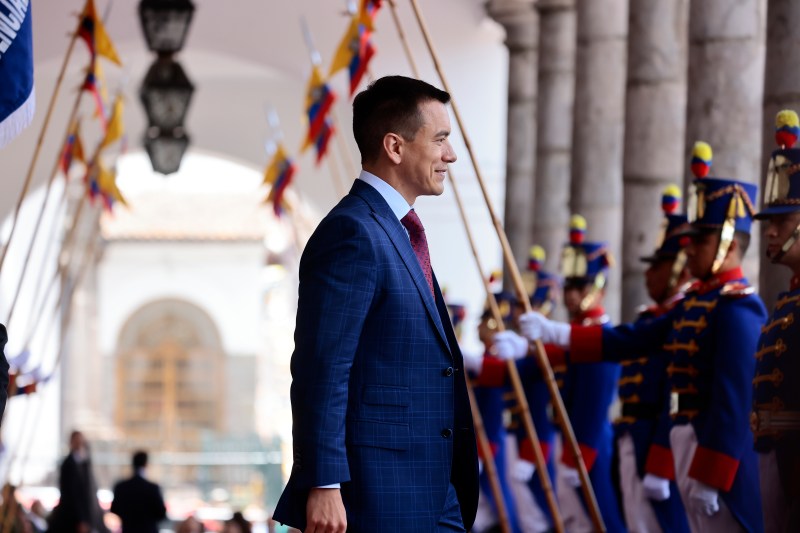




Join the Conversation
Commenting on this and other recent articles is just one benefit of a Foreign Policy subscription.
Already a subscriber?
.
Subscribe
Subscribe
View Comments
Join the Conversation
Join the conversation on this and other recent Foreign Policy articles when you subscribe now.
Subscribe
Subscribe
Not your account?
View Comments
Join the Conversation
Please follow our comment guidelines, stay on topic, and be civil, courteous, and respectful of others’ beliefs.
Change your username |
Log out